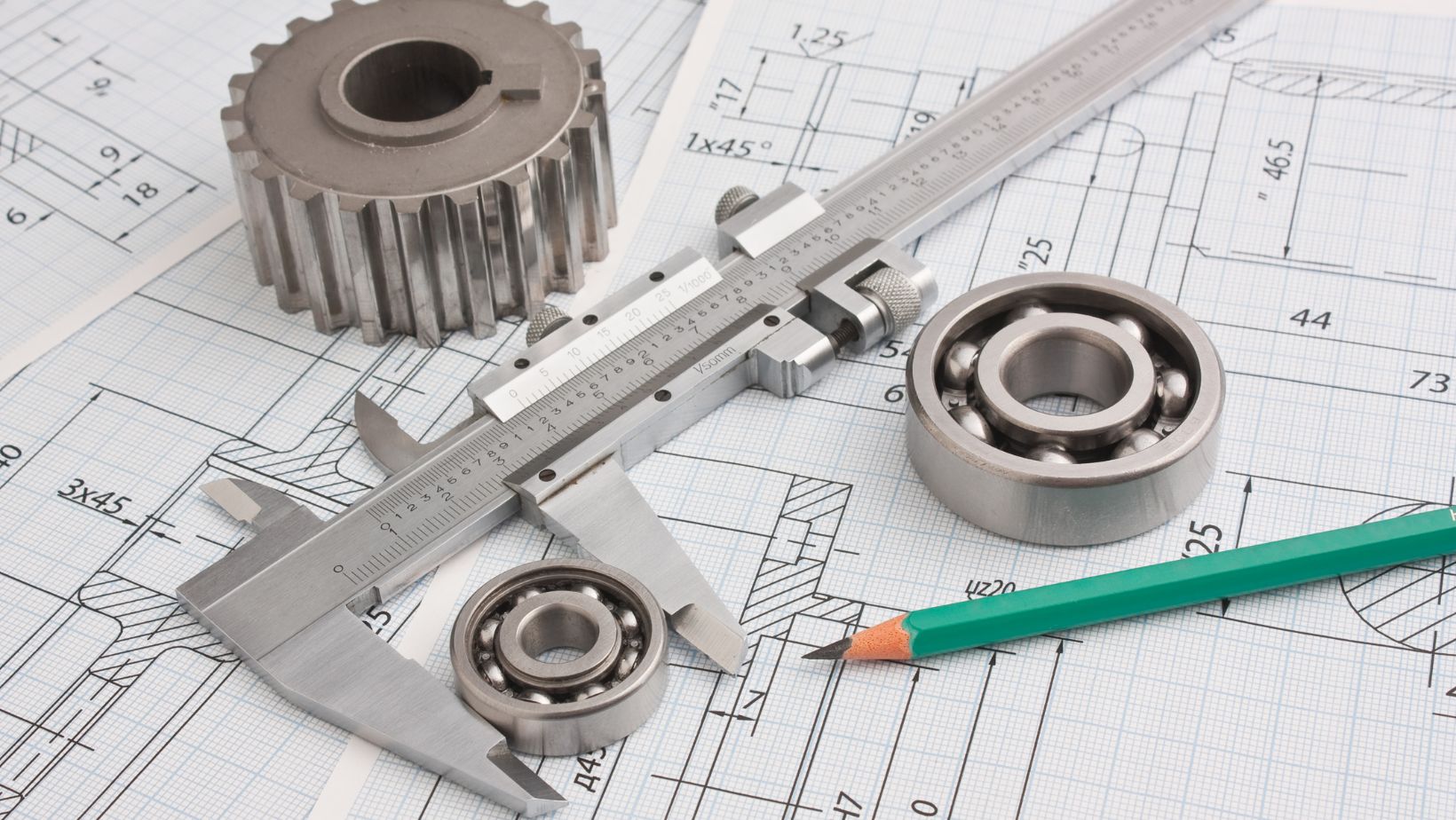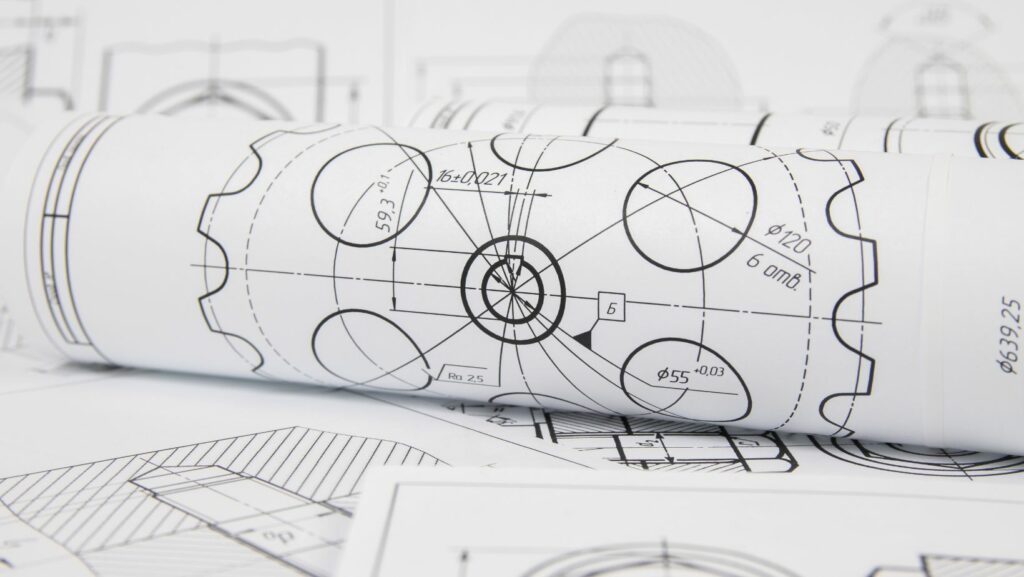Key Takeaways
- Diverse Career Opportunities: Mechanical engineering technology jobs span various roles including Mechanical Technician, Manufacturing Engineer, and Quality Control Engineer, highlighting industry versatility.
- Education & Certification Importance: A formal education—typically an associate’s or bachelor’s degree—is crucial, along with certifications like Certified Manufacturing Technician (CMfgT) to enhance employability.
- Robust Job Market Growth: The demand for mechanical engineering technology professionals is projected to grow by 4% from 2022 to 2032, driven by advancements in manufacturing and technology.
- Role-Specific Responsibilities: Job roles focus on distinct responsibilities: Design Engineers create products, Manufacturing Engineers optimize processes, and Quality Assurance Engineers ensure compliance with standards.
- Salary Variability: Salaries vary by position and experience, with median annual wages for technicians around $59,570, and higher averages for specialized engineers, reflecting job market dynamics.
- Pathways for Advancement: Opportunities for career growth exist through continued education, acquiring certifications, and gaining industry experience, enabling professionals to move into leadership roles.
Mechanical engineering technology jobs play a crucial role in today’s fast-paced industrial landscape. As industries evolve and technology advances, the demand for skilled professionals in this field continues to rise. These jobs encompass a range of responsibilities, from designing innovative products to improving manufacturing processes, making them essential for driving efficiency and innovation.
With a solid foundation in engineering principles and hands-on experience, those in this field are well-equipped to tackle complex challenges. Whether working in automotive, aerospace, or robotics, mechanical engineering technologists are at the forefront of technological advancements. Exploring the diverse career opportunities available in this dynamic sector can open doors to a fulfilling and prosperous future.
Mechanical Engineering Technology Jobs
Mechanical engineering technology jobs encompass a variety of roles centered on applying engineering principles to design, develop, and optimize mechanical systems and processes. Individuals in these positions work in numerous sectors, including manufacturing, automotive, aerospace, and robotics, showcasing the versatility of this profession.
Specific job titles in mechanical engineering technology include:
- Mechanical Technician: Responsible for assisting engineers in developing, testing, and manufacturing mechanical devices.
- Manufacturing Engineer: Focuses on improving manufacturing processes and systems for efficiency and product quality.
- Quality Control Engineer: Ensures products meet specifications and industry standards through testing and inspection.
- CAD Designer: Utilizes computer-aided design software to create detailed drawings and models of mechanical components.
Responsibilities vary by position but generally include:
- Analyzing data and conducting experiments to validate design functions.
- Collaborating with cross-functional teams to enhance product development.
- Implementing solutions to optimize manufacturing processes.
- Documenting procedures and maintaining compliance with regulations.
The demand for mechanical engineering technology jobs is on the rise. According to the U.S. Bureau of Labor Statistics, employment in this field is projected to grow by 4% from 2022 to 2032, reflecting the ongoing need for innovative manufacturing techniques and advanced machinery. As industries adapt to emerging technologies, professionals equipped with mechanical engineering technology skills remain essential for driving progress.
Education Requirements

Education plays a crucial role in securing mechanical engineering technology jobs. Employers typically seek candidates with formal education and specialized training.
Degree Programs
Mechanical engineering technology positions often require at least an associate’s degree, though a bachelor’s degree is preferred. Relevant degree programs include:
- Associate Degree in Mechanical Engineering Technology: Focuses on foundational engineering principles, design, and production techniques.
- Bachelor’s Degree in Mechanical Engineering Technology: Emphasizes advanced engineering concepts, project management, and hands-on laboratory work.
- Master’s Degree in Mechanical Engineering: Further enhances technical skills and knowledge, opening opportunities for leadership roles.
These degree programs cover subjects such as thermodynamics, fluid mechanics, and materials science, ensuring graduates are well-prepared for industry challenges.
Certifications and Skills
Certifications complement formal education and demonstrate expertise in specific areas. Relevant certifications include:
- Certified Manufacturing Technician (CMfgT): Validates knowledge in manufacturing processes and principles.
- Certified Engineering Technician (CET): Recognizes competency in mechanical systems and technical proficiency.
- SolidWorks Certification: Establishes proficiency in computer-aided design (CAD) software.
Essential skills for mechanical engineering technology jobs include:
- Analytical Skills: Assess and resolve design and process issues effectively.
- Problem-Solving Skills: Develop innovative solutions to technical challenges.
- Attention to Detail: Ensure accuracy in design specifications and production processes.
These certifications and skills enhance a candidate’s employability in a competitive job market.
Job Roles in Mechanical Engineering Technology
Mechanical engineering technology offers various career paths, each playing a vital role in product development and manufacturing processes. Key job titles include Design Engineer, Manufacturing Engineer, and Quality Assurance Engineer, each with unique responsibilities.
Design Engineer
Design Engineers focus on creating and developing new products. They use computer-aided design (CAD) software to create detailed 3D models and technical drawings. They collaborate with cross-functional teams to ensure designs meet specifications, functionality, and manufacturability standards. Design Engineers also conduct stress analysis and simulations to validate designs before production. Attention to detail and strong problem-solving skills are crucial for success in this role.
Manufacturing Engineer
Manufacturing Engineers oversee the production process to enhance efficiency and reduce costs. They develop manufacturing methods and processes, select appropriate machinery, and implement best practices for production systems. They analyze production data, identify bottlenecks, and implement process improvements. Manufacturing Engineers often work closely with design and quality assurance teams to ensure that products are manufactured to meet design specifications. Strong analytical skills and knowledge of manufacturing technologies are essential for this position.
Quality Assurance Engineer
Quality Assurance Engineers ensure that products meet established quality standards and regulatory requirements. They develop quality control processes, conduct inspections, and perform testing on materials and finished products. They analyze failure data to identify trends and implement corrective actions. Quality Assurance Engineers collaborate with other engineering teams to improve product quality and reliability. Strong attention to detail and a thorough understanding of quality management systems and methodologies, such as Six Sigma, are important for this role.
Job Market Outlook

The job market for mechanical engineering technology remains robust, driven by technological advancements and evolving industry needs. As sectors increasingly rely on skilled professionals, opportunities continue to grow.
Industry Demand
Industry demand for mechanical engineering technology professionals is rising, with key sectors such as automotive, aerospace, and robotics leading the way. Companies seek individuals who can innovate and optimize manufacturing processes. A projected growth rate of 4% from 2022 to 2032 highlights the need for skilled workers to implement advanced manufacturing techniques. Emerging fields, like renewable energy and automation, further contribute to this demand, creating diverse career opportunities for mechanical engineering technology graduates.
Salary Expectations
Salary expectations for mechanical engineering technology positions vary based on experience and specialization. According to the Bureau of Labor Statistics, the median annual wage for mechanical engineering technicians was approximately $59,570 in 2022. Salaries for roles such as Manufacturing Engineers and Quality Control Engineers tend to be higher, averaging around $86,700 and $77,200, respectively. Geographic location, industry, and level of education also significantly influence earning potential, making it essential for candidates to research specific markets to understand their potential compensation.
Career Advancement Opportunities
Career advancement in mechanical engineering technology offers numerous pathways for personal and professional growth. Individuals can pursue specialized roles and leadership positions after gaining experience.
Professional Certifications
Obtaining professional certifications significantly enhances career prospects. Certifications such as the Certified Manufacturing Engineer (CMfgE) and the Certified Quality Engineer (CQE) validate skills and knowledge, making candidates more competitive.
Advanced Degrees
Pursuing advanced degrees leads to greater responsibilities and higher salaries. A master’s degree in mechanical engineering technology or related fields provides in-depth knowledge and opportunities for research and development positions.
Industry Experience
Accumulating industry experience promotes upward mobility. Engaging in projects that require interdisciplinary collaboration fosters skills transferable to managerial roles.
Networking Opportunities
Networking plays a crucial role in career advancement. Participating in professional organizations, attending industry conferences, and connecting with mentors can open doors to new opportunities.
Continuous Learning
Emphasizing continuous learning keeps professionals updated with technological trends. Engaging in workshops and online courses enhances skills and improves job performance.
Diverse Career Paths
Exploring diverse career paths within mechanical engineering technology contributes to job satisfaction and growth. Positions such as Project Manager, Design Engineer, or R&D Specialist offer varied responsibilities and challenges.
Leadership Roles
Aspiring to leadership roles, such as Engineering Manager or Technical Director, requires strong interpersonal and decision-making skills. Participation in team leadership and project management enhances qualifications for such roles.
Career advancement opportunities in mechanical engineering technology are abundant. With strategic planning, individuals can navigate their professional journeys effectively.
Dynamic Field of Engineering
Mechanical engineering technology jobs offer a promising career path for those looking to thrive in a dynamic and evolving field. With a strong emphasis on innovation and efficiency, these roles are essential across various industries. The increasing demand for skilled professionals ensures a wealth of opportunities for graduates.
As technology advances, the scope for career growth expands, making it vital for individuals to stay updated with industry trends. Pursuing relevant education and certifications can greatly enhance employability and earning potential. By exploring the diverse roles within this sector, aspiring engineers can find fulfilling careers that not only meet their professional aspirations but also contribute significantly to technological progress.

